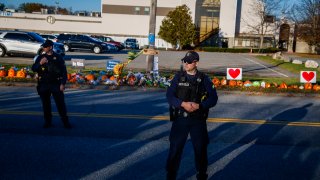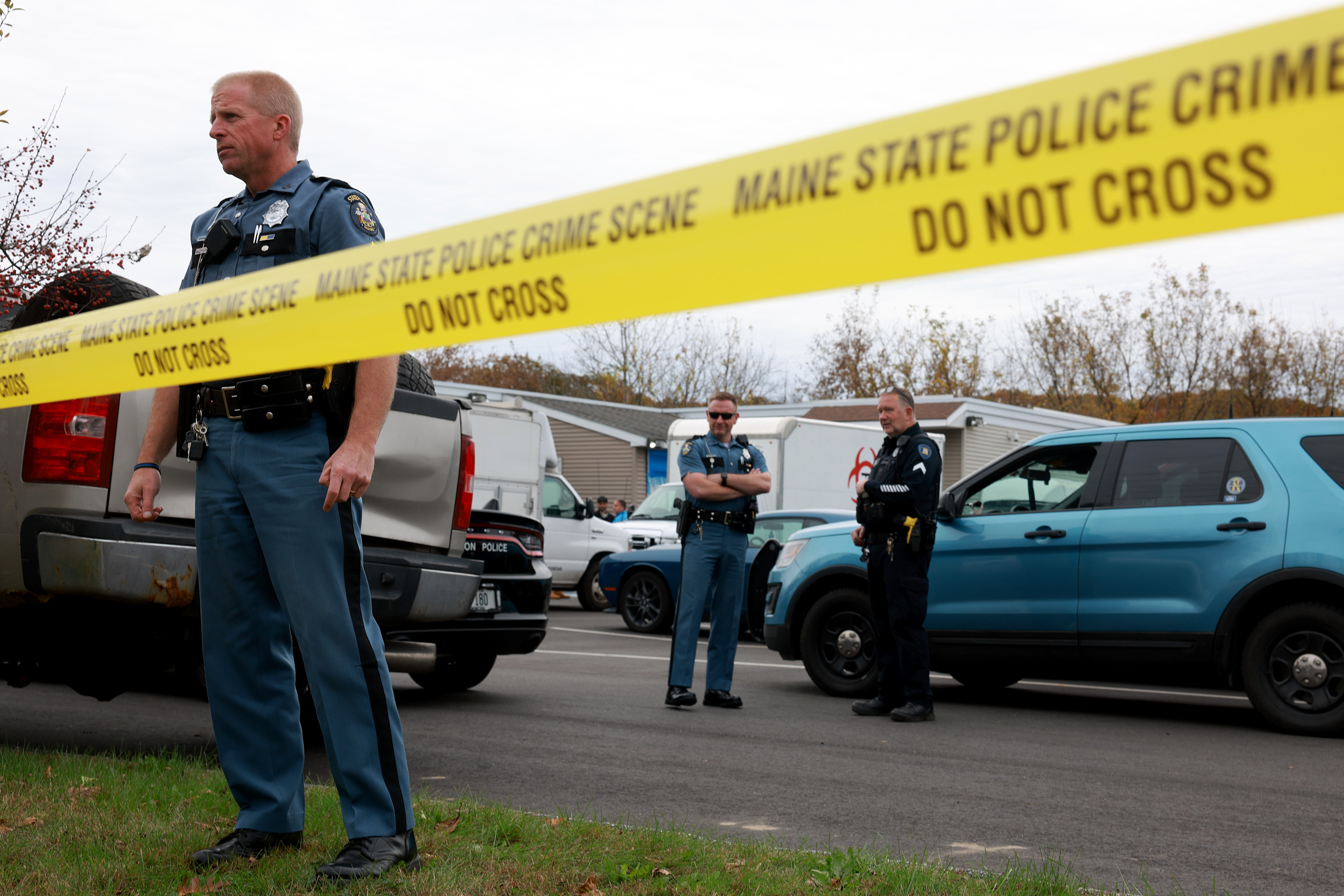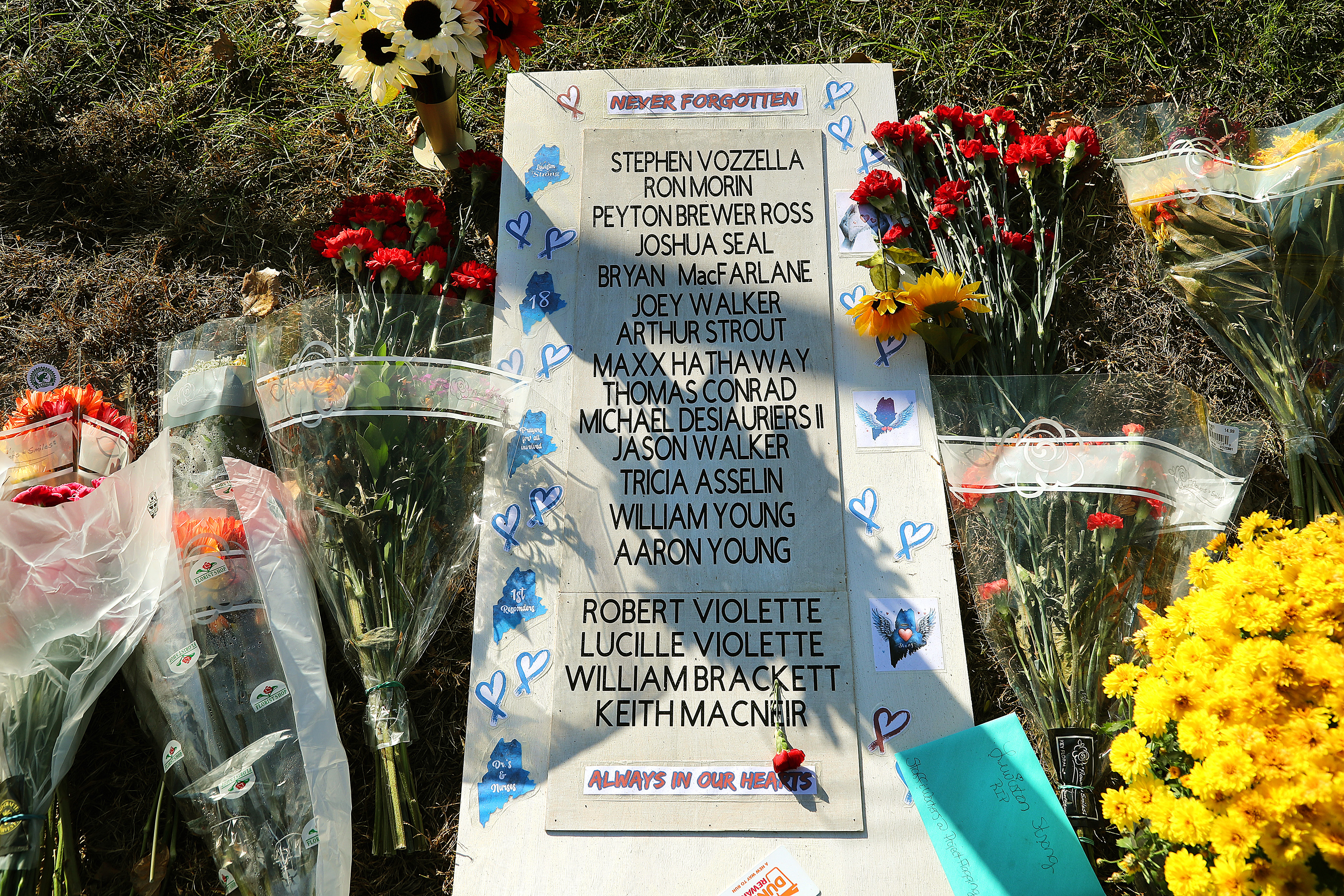
Maine state police on Thursday defended a delay in their October search for a gunman who had just killed 18 people, saying that after finding his abandoned car, they feared he could be planning an ambush.
It took police two days to find the body of shooter Robert Card, who died by suicide, while tens of thousands of Maine residents were ordered to shelter in their homes.
Police have been criticized for not finding him sooner, after they quickly identified him and found his car, and twice searched a nearby recycling facility before finding his body there on a third search.
Maj. Lucas Hare told a panel investigating the Lewiston shooting that he decided to delay a search of the woods around the car because they'd been told that the gunman, a former Army reservist, might have a thermal gun scope and night-vision capabilities.
“We would essentially be asking a patrol officer, with their canine, to go into the woods without the ability to see at night," to face off against a man with military training, he said.
“I would say that from my position as a leader, I would be negligent to ask somebody to do that,” said Hare, who heads the state police operations division.
He said the car was left in a place where it could be easily seen, and he told officers to wait for a SWAT team.
“I know that was not a popular decision,” Hare said, adding that the situation immediately made him think "there was a possibility of an ambush.”
He noted that police did deploy a helicopter with heat-seeking capability to search for Card.
Hare also described some of the confusion and tension during the search as multiple police agencies descended on the area, including some officers who showed up on their own, and emergency calls flooded in.
The Oct. 25 shooting at a bowling alley and a bar was the deadliest in state history. Democratic Gov. Janet Mills and Attorney General Aaron Frey assembled the independent commission to determine whether anything could have been done under existing law to prevent the tragedy, and whether changes are needed to prevent future mass shootings.
State Police Chief Col. Bill Ross told the panel that the shooting was “extremely unique and extremely challenging” because it involved two separate locations followed by an intense search. He said that in most other mass shootings, the suspect has died or been captured at the scene.
“The weight on our shoulders to find Robert Card was immense and became heavier as each minute passed,” Ross said.
Both police and the Army were warned that the gunman was suffering from deteriorating mental heath in the months before the shooting.
In May, relatives warned police that he was sinking into paranoia, and they expressed concern about his access to guns. In July, he was hospitalized for two weeks after shoving a fellow reservist and locking himself in a motel room during training in upstate New York. In August, the Army barred him from handling weapons on duty and declared him nondeployable.
Then in September, a fellow reservist provided a stark warning, telling an Army superior that the shooter was going to “snap and do a mass shooting.”
Army officials later downplayed the warning, but it prompted local police to go to his home in Bowdoin to check on him. He didn’t come to the door and the deputy said he didn’t have legal authority under Maine’s yellow card law to knock in the door.
The deputy told the commission that an Army official suggested letting the situation “simmer” rather than forcing a confrontation. The deputy also received assurances from the shooter's family that they were removing his access to guns.



